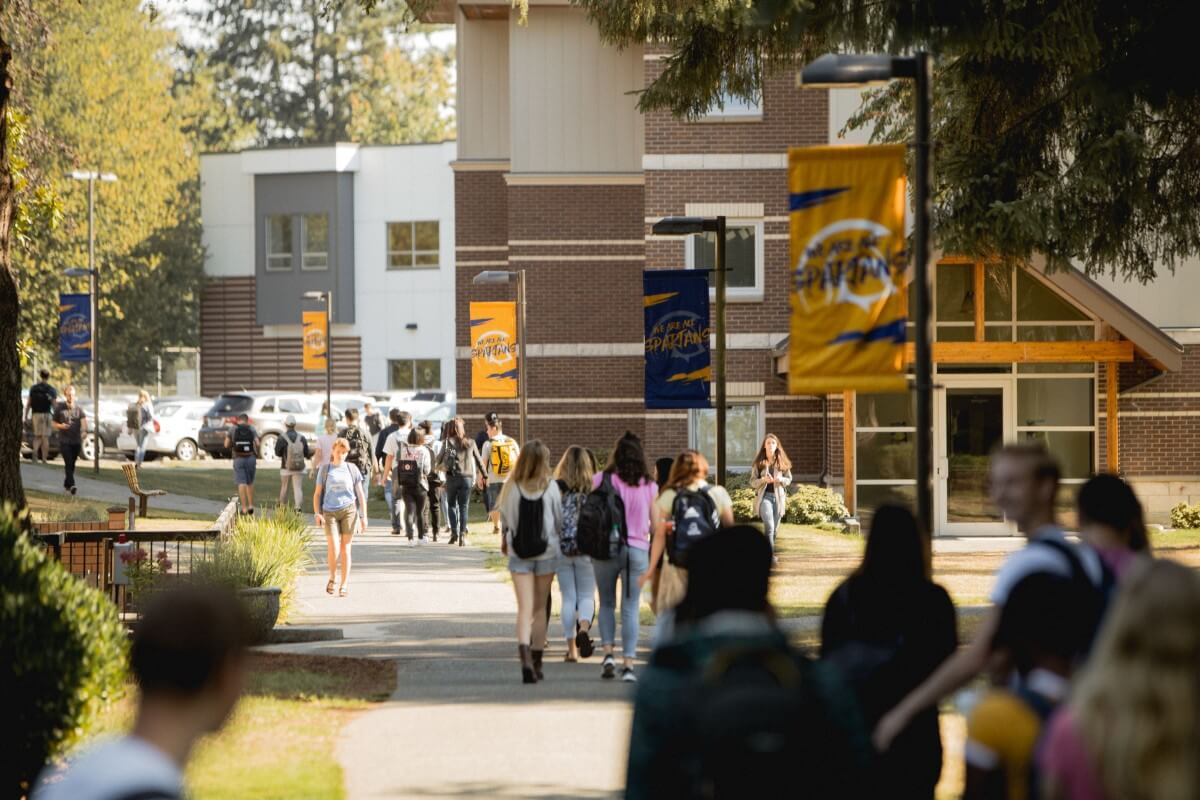Countries are in lockdown. University campuses are temporarily shut. One-third of humanity have been told to stay home.
Ripple effects of the coronavirus will change what going to university will be like in the foreseeable future and even further down the road. Amid the gloom, however, there are many upsides, with the rise of flexible and convenient multi-access learning as the most obvious.
As universities adjust to the new norm, what else should you know about how your education will pan out post-coronavirus? Here are five ways higher education has changed as a result of COVID-19.
-
We are more interconnected than ever before
The breadth and depth of the COVID-19 outbreak is upending the world the globalization era has built, dramatically altering or halting international trade, technology, education and more.
A PwC report is dubbing 2020 as the year of “slowbalization,” a change from the furious movement of trade, people and goods across borders which has defined the global economy since at least the 1970’s. It is predicting a “continued integration of the global economy via trade, financial and other flows but albeit at a significantly slower pace”.
Yet, as geographical borders shut, others are dissolving and bringing people closer together than ever.

Source: Trinity Western University
From scientists all over the world collectively racing to find a vaccine to hundreds of thousands of students signing into Zoom sessions, one fact is growing increasingly obvious: We are more interconnected than ever before.
Another thing should remain the same: How you should plan for your future.
Pandemic or not, you will still need to focus on your career and build an agile skill set to respond to these changes.
Because in the next two years, by 2022, the World Economic Forum (WEF) reports that 42% of core skills required to perform existing jobs are expected to change.
“As jobs are transformed by the technologies of the Fourth Industrial Revolution, we need to reskill more than 1 billion people by 2030,” says WEF Managing Director Saadia Zahidi.
-
Online learning = flexible access
The 2020 Online Education Trends Report by Bestcolleges.com found student satisfaction with online learning is high. Ninety-four percent of respondents say online learning has, or will have, a positive return of investment (ROI) for them. Ninety-five percent of respondents would recommend online education to others.
When students were asked why they chose online learning instead of a traditional campus-based program, convenience and flexibility to study around existing commitments topped the list for the fourth year in a row.

Amid the COVID-19 pandemic, this gradual transition into online learning has turned into a hasty rush for some colleges and universities, resulting in a not-so-satisfactory experience for their students.
On the other hand, there are universities like Trinity Western University (TWU) in Canada, which has had a 20-year head start in the online learning scene.
TWU’s online learning system has been around since 2000, with a Moodle system created for each course prior to COVID-19. This has made it easy for their students to transition to online learning within a matter of days.
“TWU started preparing for a COVID-19 world over 20 years ago, not just by developing online courses, but by integrating web-enhanced learning facilities into each course (face-to-face or online) developing blended learning courses and programs and providing faculty training and support for the advancement of integrating online learning into classroom learning,” states TWU Vice Provost Philip Laird.
When choosing a degree in the future, first ensure that the university has virtual and flexible academic resources in place — as history shows, they will come in very handy!
-
Community matters
As coronavirus-related confirmed cases and deaths rose around the world, many universities closed their doors and told international students to leave.

Source: Trinity Western University
Higher education isn’t just about entering a university and leaving with a degree certificate. It’s about joining a community and creating lifelong bonds with people from all around the world. It’s also about helping each other out when things get tough.
That’s why in the QS 2019 International Student Survey, students said “How welcoming the university is to international students” was the most influential factor for them when choosing a university abroad.
TWU values the community experience it brings to their students which is why in a matter of weeks they decided to bring the campus experience through virtual reality called TWU LIVE.
Scott Fehrenbacher, Senior Vice President of External Relations, said “We have a cap on how many people we can host here on campus over a preview weekend, but with a virtual reality experience we don’t have that limitation”.
Although the delivery method might look a little different during this time, TWU is making sure that students are top priority and that the experience they know and love will still be delivered during this period of multi-access learning.
Scott Macklin, TWU Executive Director of Online Learning summarizes TWU’s commitment to community, “Central to the concept of multi-access learning is providing students with a learning community and support system wherever they take their classes.
“Although borders might not open up, TWU will provide its globally-recognized brand of community across the globe.”

When you’re viewing a virtual open day, or strolling around a university campus in the future, make sure to ask students what they think about their professors, their peers and how their university responded to the global pandemic.
If the answer is positive, then you know it’s a university worth studying at.
-
Location, location, location
Location matters.
And when you’re stuck in student accommodation amid a crisis like COVID-19, it will matter even more.
This is because you would need to know if you can rely on a country’s healthcare services and student support.
International students in Canada picked the right country to study abroad in because they are eligible for universal healthcare and can still qualify for the Post Graduation Work Permit (PGWP) if they are doing online classes and coursework, according to Immigration, Refugees and Citizenship Canada.
The Canadian government is also allowing international students to enter Canada to begin their studies, (if they self-quarantine for 14 days upon entry) and states that the Canada Emergency Response Benefit (CERB) will provide temporary income support for those whose livelihoods have been affected by COVID-19.
That’s great news for international students in Canada who meet the qualification criteria as they are entitled to CA$500 a week for up to 16 weeks.

Source: Trinity Western University
Canada’s record of peace, high standard of living, diversity and inclusion and world-class accessible healthcare make it the ideal place to face a pandemic.
-
Protecting students is the University’s job
Once the world is out of the COVID-19 tunnel, it’s highly likely that unemployment rates will have rocketed.
Therefore, universities need to protect the financial welfare of their online and offline students during and long after the crisis.
For instance, TWU is financially strong and has paid off CA$40 million in debt.
“At TWU, students come first,” said Laird.
“That’s why we allowed 170 international students to stay in dorms with physical distancing rather than sending them to difficult or impoverished home environments, that’s why TWU has received an A+ in quality of teaching and learning year after year and that’s why students continue to give TWU among the highest rankings in student satisfaction on the CUSC and in student engagement on the NSSE.”
After all, universities can’t just abdicate their responsibilities if there’s a crisis. If we’ve learned anything from the COVID-19 crisis, it’s that we are all responsible for each other. Regardless of what happens in the world, universities are still responsible for the financial, educational, mental welfare and career success of their students.
Be sure to choose one that stands by you and your future.
Follow Trinity Western University on Facebook, Twitter, YouTube, Instagram and LinkedIn











